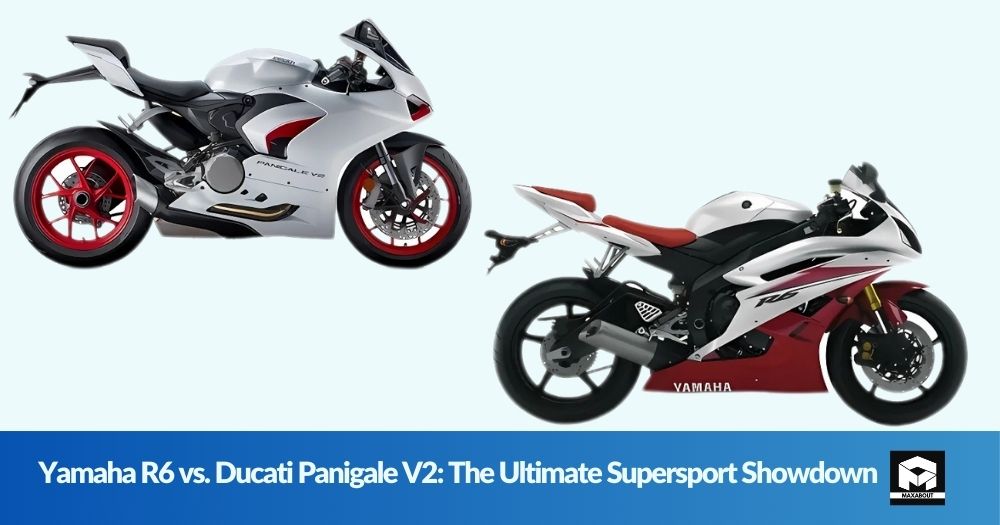In the world of supersport motorcycles, few names resonate as strongly as the Yamaha R6 and the Ducati Panigale V2. These two bikes represent the pinnacle of engineering and performance in the 600cc category, each boasting unique features, impressive specifications, and a loyal following among enthusiasts. This article will provide an in-depth comparison of these two iconic motorcycles, examining their performance, technology, and overall riding experience. Whether you’re a seasoned rider or a newcomer to the sportbike scene, this guide will help you understand which bike might be the right fit for you.
What Defines a Supersport Motorcycle?
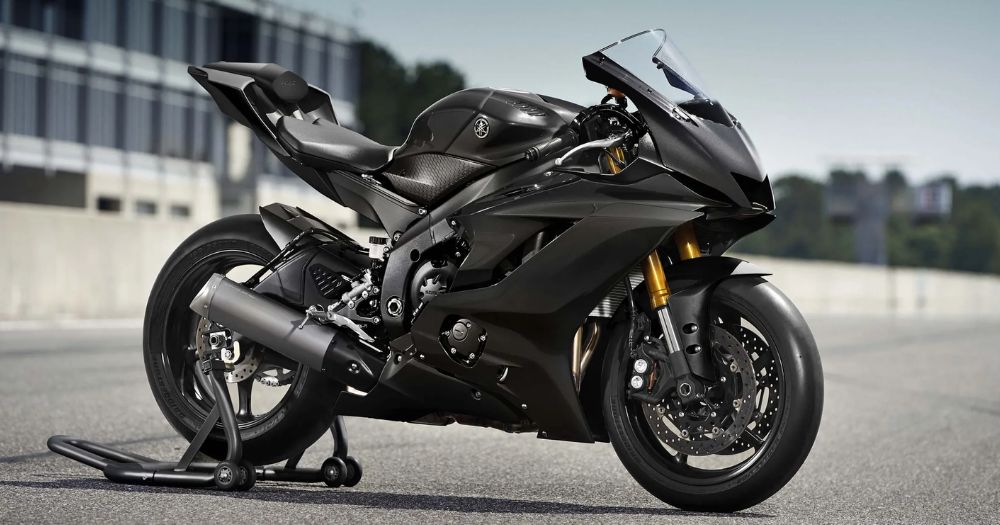
Supersport motorcycles are engineered for high performance, agility, and speed, making them ideal for both track use and spirited rides on public roads. These bikes typically feature lightweight frames, powerful engines, and advanced aerodynamics that allow them to excel in cornering and acceleration. The Yamaha R6 has long been a benchmark in this category, known for its razor-sharp handling and high-revving engine that encourages aggressive riding styles. On the other hand, the Ducati Panigale V2 combines Italian flair with cutting-edge technology, offering a unique blend of power and style that appeals to riders looking for both performance and aesthetics.
How Does the Yamaha R6 Perform on the Track?
The Yamaha R6 is renowned for its track-ready performance. Powered by a 599cc inline-four engine that produces approximately 117 horsepower at 14,500 RPM, it delivers exhilarating acceleration and top-end power that is hard to match in its class. One of the defining characteristics of the R6 is its ability to maintain high speeds through corners thanks to its lightweight design and precise handling dynamics. The bike’s suspension setup includes KYB 43mm inverted forks at the front and a rear KYB piggyback shock that provides excellent feedback during aggressive riding. Riders often praise its agility, making it a favourite among track enthusiasts who appreciate its responsiveness at high speeds.
What are the Key Features of the Ducati Panigale V2?
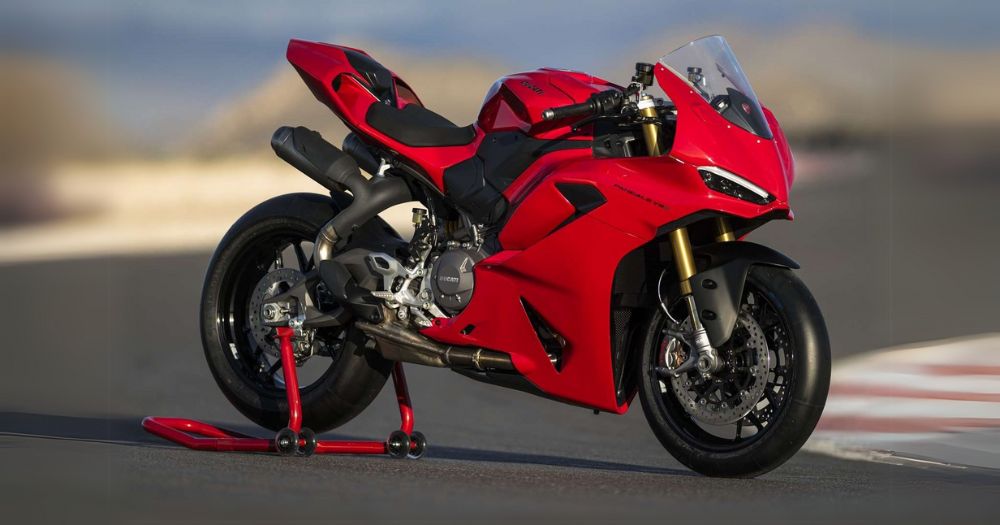
The Ducati Panigale V2 stands out with its powerful 955cc L-twin engine that produces around 155 horsepower at 10,750 RPM. This engine configuration offers a different power delivery compared to inline-four engines like those found in the R6. Key features of the Panigale V2 include advanced electronic aids such as traction control, multiple riding modes (Race, Sport, Street), and cornering ABS that enhance safety without sacrificing performance. The bike’s design is equally impressive; with its sleek lines and aggressive stance, it embodies Italian craftsmanship while providing excellent aerodynamics. In terms of suspension, the Panigale V2 features fully adjustable Öhlins front forks and a Sachs rear shock that allows riders to fine-tune their setup based on personal preferences or riding conditions.
How Do Their Engine Specifications Compare?
When comparing engine specifications between these two motorcycles, it’s essential to consider how they translate into real-world performance:
| Feature | Yamaha R6 | Ducati Panigale V2 |
|---|---|---|
| Engine Type | Inline-four | L-twin |
| Displacement | 599cc | 955cc |
| Max Power | 117 HP @ 14,500 RPM | 155 HP @ 10,750 RPM |
| Max Torque | 45.5 Nm @ 10,500 RPM | 104 Nm @ 9,000 RPM |
| Gearbox | 6-speed | 6-speed |
The R6’s smaller engine allows for higher RPMs but less torque compared to the Panigale V2’s larger displacement engine that provides more low-end grunt. This difference affects how each bike accelerates out of corners—while the R6 requires higher revs to unleash its power, the Panigale delivers strong acceleration throughout its rev range.
What Electronic Aids Do They Offer?
Both motorcycles come equipped with advanced electronic aids designed to enhance rider control and safety:
- Yamaha R6: Features include traction control with three settings (Standard, A Mode, B Mode) and ABS.
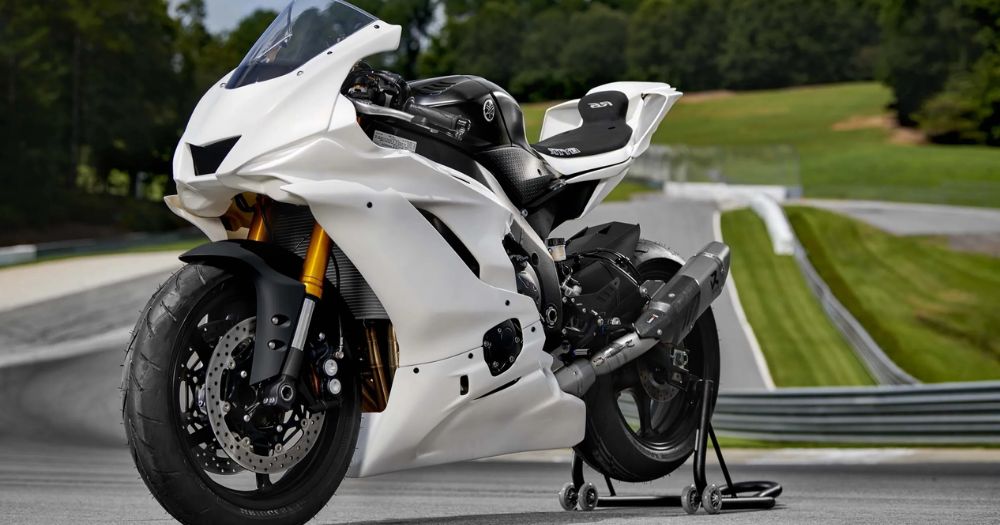
- Ducati Panigale V2: Offers more sophisticated systems such as a six-axis IMU (Inertial Measurement Unit), cornering ABS, multiple riding modes (Race, Sport, Street), and adjustable traction control. The Ducati’s electronic suite provides more customisation options for riders looking to fine-tune their experience based on skill level or riding conditions. This makes it particularly appealing for those who want maximum performance without sacrificing safety.
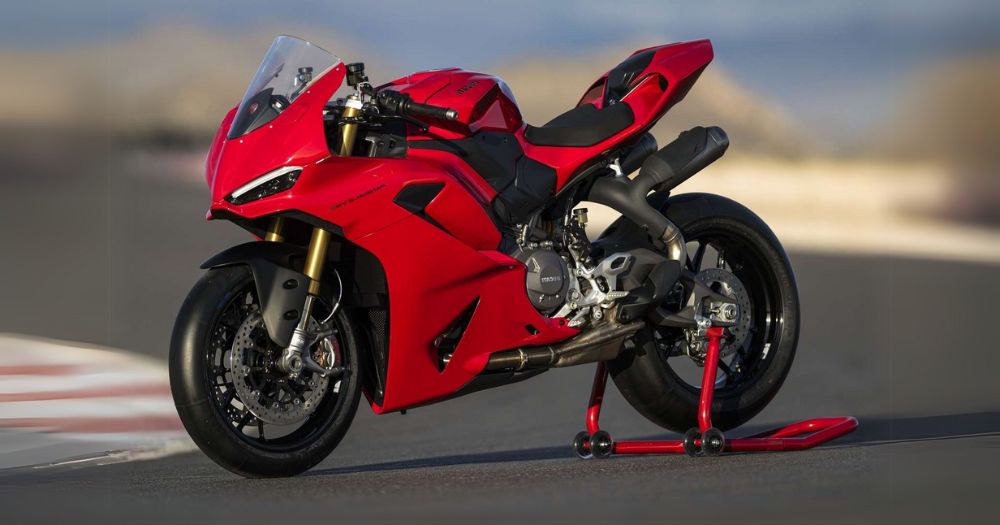
How Do They Handle and Accelerate?
Handling is crucial in supersport motorcycles as it directly impacts rider confidence on track or road.
- Yamaha R6: Known for its razor-sharp handling thanks to a lightweight frame and precise steering geometry. It is designed for aggressive riding positions, which can be less comfortable over long distances.
- Ducati Panigale V2: While also agile, it offers slightly more comfort due to its riding position and ergonomics designed for better long-distance usability without compromising sportiness. Both bikes excel in handling but cater to different rider preferences—those who prioritise track performance may lean towards the R6, while those seeking a balance between comfort and sportiness might prefer the Panigale V2.
What is Their Top Speed?
Top speed is often a key consideration for potential buyers:
- The Yamaha R6 has an impressive top speed of approximately 262 km/h (162 mph).
- The Ducati Panigale V2, with its larger engine displacement, reaches around 270 km/h (168 mph). While both bikes offer exhilarating top speeds suitable for track days or spirited rides on open roads, it’s important to note that real-world riding often prioritises acceleration and handling over sheer speed.
How Do Aftermarket Options Enhance Performance?
Aftermarket modifications can significantly enhance both bikes’ performance:
- For the Yamaha R6, popular upgrades include exhaust systems that improve airflow and reduce weight while enhancing sound quality.
- The Ducati Panigale V2 benefits from various tuning options like ECU remaps and performance air filters that can unlock additional horsepower. Riders often explore aftermarket solutions not only to boost performance but also to personalise their bikes according to their style preferences or riding needs.
Which Bike is More Suitable for New Riders?
Choosing between these two motorcycles can be daunting for new riders:
- The Yamaha R6, while highly capable, may be overwhelming due to its high-revving nature and aggressive ergonomics.
- The Ducati Panigale V2, with its broader power band and user-friendly electronics, might be more forgiving for less experienced riders. Ultimately, new riders should consider their comfort level with power delivery and handling characteristics before making a choice between these two exceptional machines.
What Do Riders Say About Their Experiences?
Many Yamaha R6 owners rave about its agility on track days and how rewarding it feels when pushed hard.- Ducati Panigale V2 riders often highlight its blend of power delivery across different RPMs along with superior electronic aids that enhance safety without detracting from enjoyment. Both bikes have garnered loyal followings thanks to their unique characteristics that cater to different types of riders—whether you prefer raw power or refined technology.

